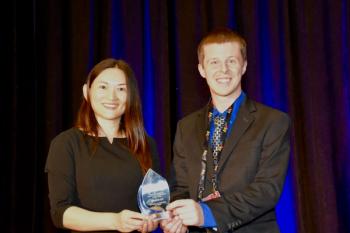
- March 2023
- Volume 38
- Issue 03
- Pages: 39–41
The 2023 Spectroscopy Employment and Salary Survey: Is a Recession Looming—Or Even Already Here?
Spectroscopists offer their views on their salaries and the current job market, weighing in on topics such as job security, economic recession, and skill sets of new workers.
The past year was a unique and challenging one for spectroscopists. With talk about a global recession—and several countries already reporting economic recessions—greater uncertainty in the job market was on the mind of many. For this 2023 edition of our annual salary and employment survey, we gathered information about average salaries and compared those numbers to previous years. We also addressed broad trends in the global economy, asking respondents to offer their thoughts on whether they think a recession is already impacting their country, and how they are responding to current economic conditions. The results reveal that anxiety about the global economy is on the minds of many spectroscopists. We present these results in the text and graphics below.
Salary and Compensation
As in previous years, we analyzed all reported salaries that were between US $15,000 and $250,000. Based on those data, the average salary for spectroscopists came in at $96,683, representing an approximate 3% decrease from last year ($99,740). However, this salary decrease reflects the respondent profile, as more younger workers responded to the 2023 survey (where 34.7% of respondents had fewer than 10 years of experience) than in 2022 (with 15.5% of respondents in that bracket).
Work Environment and Seeking Alternative Employment
Most spectroscopists (63%) reported that their current work environments are better than last year. Despite this improvement, a majority (59%) indicated an interest in seeking better employment opportunities beyond their current situation.
When citing motives for pursuing alternative employment, the top two reasons were seeking a higher salary (19%) and dissatisfaction with their employer (9%). On the other end, for respondents who are not seeking to leave their current jobs, the most-cited reasons were their salary (18%) and a convenient work location (16%).
Job Market
We also asked respondents to comment on the job market for spectroscopists. Respondents were mostly positive, with approximately 73% categorizing the job market as either “excellent” or “good.”
With a global economic recession either already happening or looming, we also asked respondents to comment on their job security. A sizable minority (43%) consider their jobs to be just as stable now as they were last year. About 31% said their jobs are more secure now than last year, but nearly 26% said their jobs are less secure. Just under 26% expressed anxiety about an economic recession, and some 37% said that losing their job would be their biggest concern during a recession. Approximately 69% said that their country is already in an economic recession.
Demographics and Methodology
The 2023 Spectroscopy salary survey was available online from November 22, 2022, to January 12, 2023, and received a total of 153 responses from spectroscopists at various stages in their careers. Of the 153 respondents, 25.2% have 21–35 years of spectroscopic experience; 19.7% have 5–9 years of experience; 15% have fewer than 5 years of experience in the field; 13.6% have between 36–40 years; 12.9% have 10–15 years of experience; 10.9% have 16–20 years in the field; and 4.1% have 41 years or more of experience in the field.
The gender breakdown was 28.6% female and 65.3% male; the other 6.1% preferred not to answer.
Half of our respondents reported that they work in industry, 32% work in academia or at an academic institution, 10% work in government or a nationally funded laboratory, and 1% said they work for the military. Respondents came from 16 different countries: Belgium, China, Croatia, Germany, Greece, India, Pakistan, Poland, Russia, South Korea, Sweden, Switzerland, Tunisia, Turkey, the United Kingdom, and the United States.
Will Wetzel is an Editor for Spectroscopy. Direct correspondence to:
Articles in this issue
Newsletter
Get essential updates on the latest spectroscopy technologies, regulatory standards, and best practices—subscribe today to Spectroscopy.




